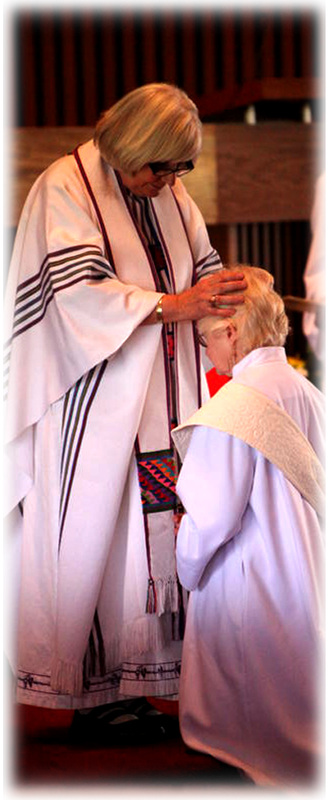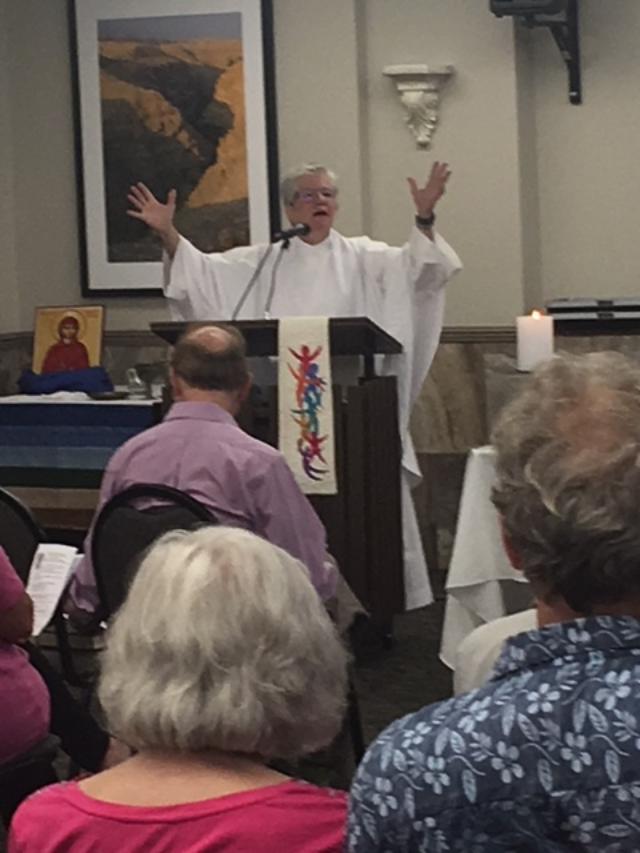The multifaceted wholeness of God
May 26, 2024
Helen Weber-McReynolds, RCWP
Deut 4: 32-34, 39-40; Ps. 33; Romans 8: 14-17; Matt 28: 16-20
I would like to start today with a little audience participation. Is there one brave soul who could please stand up and explain some of their many roles in life? Maybe you could frame this by saying, “I am a _____,” and repeat it about several of the jobs and roles you have in life.
Thank you! We can see that any given person is not just one thing. We are all multifaceted, able to do many things, and to relate to other people and to God in many different ways. It seems to me, that if this is true of humans, it is surely true of God, the ultimate Person of all being, the most complete and inclusive Being there is.
Our readings today give us a starting point with which to understand the many identities of God. They emphasize the three images of God traditionally grouped as the Holy Trinity, and these are rich and beautiful images. The first reading, from Deuteronomy, described the greatness, power, and originality of God the Creator. It is an ancient defense of monotheism, of course, written when this was a unique idea for people to follow. But it is also an inspiring and poetic praise of God, the Originator of all. In question form, it proclaims the superiority of the God of Israel, compared to all previous gods, saying, “…from the time God created human beings on this earth… has anything as great as this ever happened before?” And it proclaims that God’s greatness cannot be contained only in humans, saying, “Know this well, and take it to heart. God is everywhere, in the heavens and the earth, in the vastness of creation.” So God, the Deuteronomist proclaims, is in every creature and substance, all throughout the cosmos.
Our second reading tells how Paul wrote to the Romans, a community of both Jews and Gentiles, about the Holy Spirit, stating that, “God’s Spirit beckons.” She constantly draws us, all of us, to herself and her wisdom if we choose to follow. And the Spirit offered, Paul stated, is a Spirit of adoption, which actually puts us on a relationship par with Christ. “The Spirit Herself joins our spirit confirming that we are children of God, God’s holy family!” Paul proclaims. “And so, if we are in solidarity with the Christ, in hardship, suffering, and even death, then we will also experience the blessings the Christ now enjoys, the glory that awaits.” As Sr. Mary McGlone explains, “This implies that we share in (Christ’s) relationship with God, and if with God, then with the rest of creation as well.” The Holy Spirit invites everyone to be one with Christ and the Creator, and ALL creation.
Our gospel attributed to Matthew framed what has become the traditional Trinitarian Christian baptismal formula. It quoted Jesus as issuing what has come to be called The Great Commission, the call for disciples to go forth and baptize all peoples, “… in the name of God who is Father and Mother, the Child, Jesus the Christ, and the Holy Spirit.” This idea apparently evolved gradually as Christian theology, as one way to capture the way the followers of Christ understood the different facets of God’s being.
But certainly, we understand that there are many more aspects to our understanding of the character of God. Jesus mentioned many in his parables. He compares God, and the Reign of God, the perfect life of love which we all aim to help create, as a mustard seed, tiny, but capable of growing into a bush that can protect many birds. He said God is like yeast, with which a baker which could somehow transform flour into bread, comparing it to the caring and thirst for justice with which we can “leaven” and transform our relationships and society. Jesus said God is like a woman searching for lost coin, turning her house upside down to find it, then rejoicing with her friends and neighbors when it is found. His listeners, no doubt, could see the connection with a God who valued each and every person and creature, never willing to lose even one. And we can find many more examples in Jesus’ teachings.
I’ve mentioned before Richard Rohr’s conception of the many manifestations of God’s being as a flow of love, each member equally contributing to and benefiting from the other. He says that this is a mystery that we can only understand contemplatively, through deep thought and meditation about and with God. He says, “To approach the Trinity in this way is not to understand at all, but to “stand under” a waterfall of infinite and loving Flow.” In this view, there can probably be as many identities of God as there are drops of water in a waterfall.
To me, the most beautiful thing about this multi-factorial view of God is that it recognizes the endless variety of humans and other creatures, and that, as Paul said, God beckons ALL. And if God is incarnate, revealed in flesh like ours, flesh of all races, genders, sexualities, relationships statuses, occupations, levels of education, and physical abilities, then there is no limit to the acceptance and inclusion to which we are called. This is our challenge, I think, to embrace the many identities of God in the many identities of people and other creatures around us, and to love and fight for justice for them all. The Trinity is just a starting point. We can let science and art and sociology and all the other knowledge with which we have evolved lead us to fully know God in the endless variety of Creation.
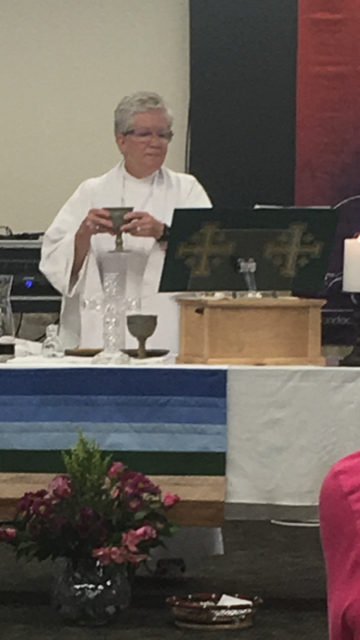
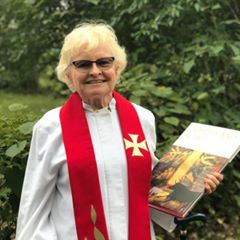
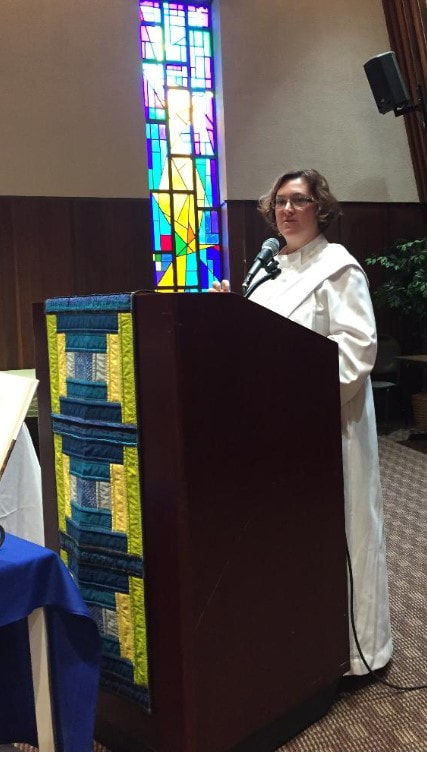
 RSS Feed
RSS Feed
